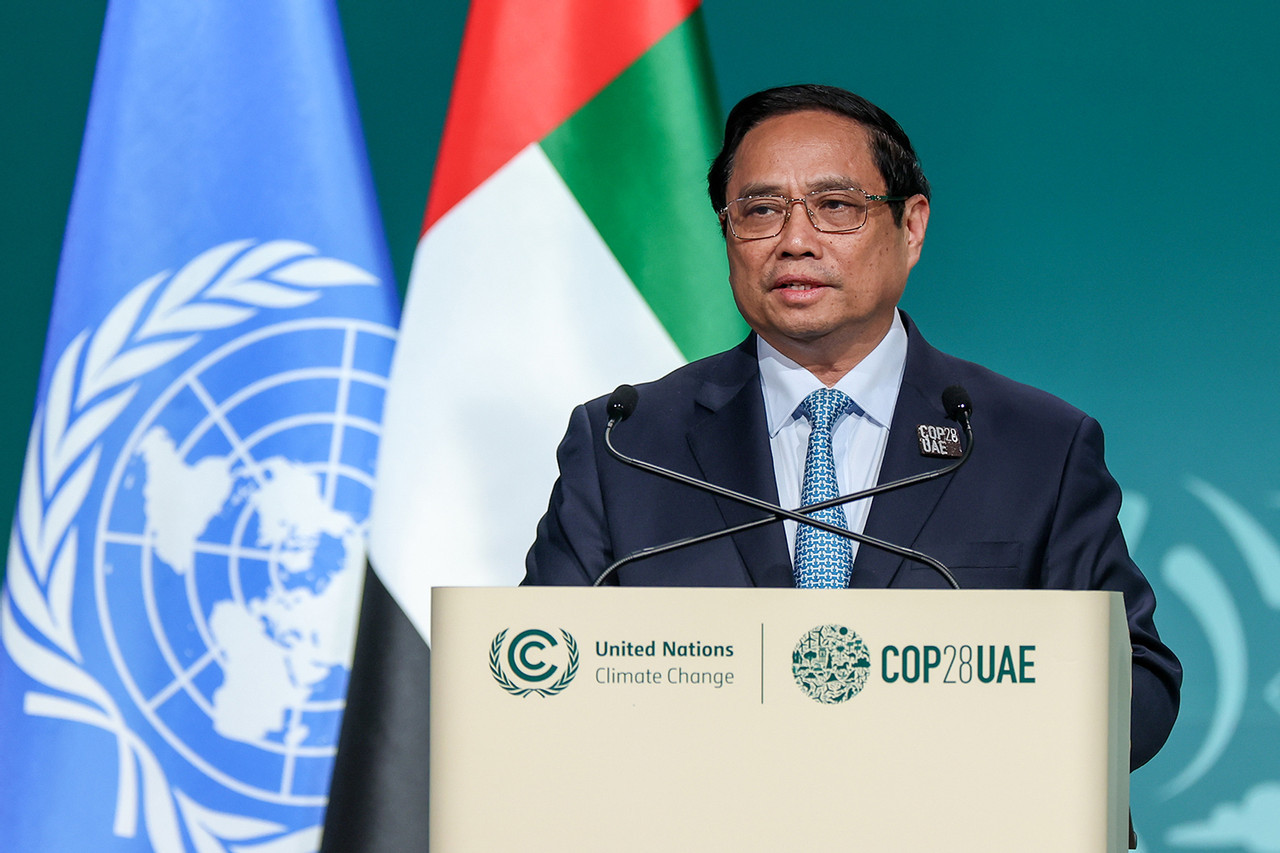
Deputy Minister of Foreign Affairs Do Hung Viet met the press to speak about the outcomes of Prime Minister Pham Minh Chinh’s trip to attend COP 28, to carry out bilateral activities in the UAE, and to pay an official visit to Turkey.
After five working days, Chinh and the high-ranking Vietnamese delegation have finished the business trip, fulfilling tasks and reaching their goals.
Breakthrough in cooperation regime
For Turkey, the Prime Minister’s visit made a breakthrough in improving relations between the two countries. The Prime Minister had talks and meetings with Turkish top leaders, including the President, Vice President and the Speaker of the Grand National Assembly, and received ministers in charge of the economy, finance, industry and technology, as well as presidents of large Turkish businesses.
The Prime Minister and Turkish leaders agreed on many important measures to improve effective cooperation between the two countries, including promoting the early opening of the Turkish Consulate General in HCM City, and opening the market to each country's export products, aiming to increase bilateral trade turnover to $4-5 billion in the near future.
The leaders of the two states for the first time discussed the possibility of upgrading their relations to a new level. The two sides also talked about the activation of negotiations on a free trade agreement between the two countries.
“This is a strong breakthrough, demonstrating the strong determination of the states’ leaders to consolidate and strengthen relations between the two countries,” Viet said.
The two sides for the first time released a joint declaration specifying major and important directions, as well as identifying specific areas for cooperation expansion.
Opening up new markets
In the United Arab Emirates (UAE), Chinh met the Prime Minister and Vice President, Crown Prince of the Emirate of Dubai, and received the UAE Minister of Human Resources and Director of Abu Dhabi Energy Authority.
UAE leaders affirmed their desire to promote friendly relations and cooperation with Vietnam, especially in the fields of trade, investment, science - technology, and human resources development.
The two sides agreed on measures to promote cooperation, such as accelerating negotiations and signing the Comprehensive Economic Partnership Agreement (CEPA), increasing two-way trade turnover to $10 billion in the coming years, and supporting Vietnam to develop a Halal industry, and promoting green growth, digital transformation, innovation, and the building of financial, logistics and sports centers.
Chinh met leaders of Turkish and UAE’s leading corporations and investment funds, and delivered a speech at business forums which gathered nearly 200 businesses from each country.
Turkish and UAE businesses praised Vietnam’s policies to attract investment and business, affirming their desire to commit long-term investment in Vietnam.
During the visits, Vietnam’s ministries, branches, local authorities and enterprises signed 31 important cooperation agreements with the UAE, Turkish and international partners in the fields of security, agriculture, civil aviation, human resources, digital transformation and seaports.
The Vietnamese Prime Minister has paid two visits to the Middle East within two months to show Vietnam’s interest to develop the relations with potential partners.
Deputy Minister of Industry and Trade Nguyen Sinh Nhat Tan said the negotiation for CEPA has gained groundbreaking progress with most content having been completed, and an agreement may be signed in 2024.
This is the first free trade agreement (FTA) that Vietnam has negotiated with an Arab country in the Middle East and Africa, which is the first step in promoting relations not only with the UAE but also the entire region.
In recent years, Vietnam has a had trade surplus with UAE, about $4 billion a year. Vietnam's imports from UAE account for about 8-10 percent of total import-export turnover, while exports from Vietnam to the UAE account for over 90 percent of the total import-export turnover between the two countries.
Thu Hang